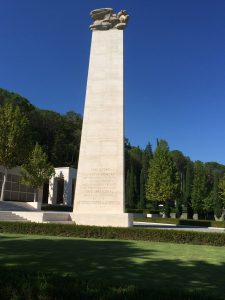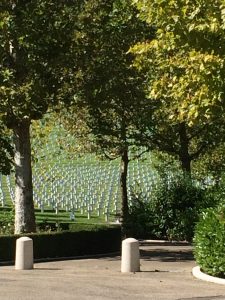The Thrill of the Vote
This post first ran on election day in 2008. My feelings on the subject haven't changed:
 It's election day in Chicago. I just walked home from voting for a new mayor and a new alderman--and I miss my old neighborhood.
It's election day in Chicago. I just walked home from voting for a new mayor and a new alderman--and I miss my old neighborhood.
For ten years I lived in South Shore: a white graduate student/small business owner/writer in a neighborhood dominated by the African-American middle class. My neighbors were police officers, schoolteachers, fire fighters, electricians, and social workers. We didn't have much in common most of the year--except on election day.
As far as I'm concerned, voting is thrilling. My South Shore neighbors agreed. Voting in South Shore felt like a small town Fourth of July picnic. Like Mardi Gras. Like Christmas Eve when you're five-years-old and still believe in Santa Claus. No matter what time of day I went to vote, my polling place was packed. Voters and election judges greeted each other--and me--with hugs, high fives, and "good to see you here, honey". First time voters proudly announced themselves. Elderly voters told stories about their first election. People made sure they got their election receipts; some pinned them to their coats like a badge of honor. An older gentleman sat next to the door and said "Thank you for exercising your right to vote" as each voter left. The correct response was "It's a privilege."
Except for occasional confusion when the machine that takes the ballots jams, my current polling place is low key. Election judges are friendly and polite, but hugs are not issued with your ballot. When the young woman manning the machine handed me my receipt, she told me to have a good day. I said "It's always a good day when you get to vote." In South Shore, that would have gotten me an "Amen." In politically active, politically correct Hyde Park, it got me an eye-blinking look of surprise and a hesitant smile.
I started home, thinking maybe I was the only one in the neighborhood whose pulse beat faster on election day. A block from the polls I ran into a young man walking with a small boy, no more than six years old. The little boy stopped me, with a grin so big that he looked like a smile wearing a wooly hat.
"Did you vote yet?" he asked. "My dad is taking me to teach me how to vote."
"It's a privilege," I said.
He gave me the highest five he could manage.
* * *
So tell me, did you exercise your right to vote today?
Road Trip Through History: The American Cemetery
People often visit the English Cemetery* when they go to Florence. The final resting place of prominent nineteenth century inglesi, including Elizabeth Barrett Browning, the cemetery is by all accounts a beautiful park in a city that already teems with beauty.
It was on our list of possibles, but when push came to running out of time we chose the American Cemetery instead. Where the English Cemetery holds the graves of self-selected nineteenth century expats, the American Cemetery honors an involuntary group of expatriates: 4398 American soldiers who died in the Allied campaign to liberate Italy in World War II. The cemetery site was taken by the US Fifth Army on August 3, 1944 and was subsequently granted for use as an American burial ground by the Italian government **
When I think of Florence and history, I think of the Renaissance. I don’t think about World War II. This is, of course, ridiculous. When you are in Florence, subtle reminders of the war are everywhere. Stories of museum curators and librarians who protected treasures of Renaissance art. Bridges that no longer exist because retreating German forces destroyed all of the bridges across the Arno except for the Ponte Vecchio, which was spared at the last minute.*** (Instead they blocked access by destroying the medieval buildings at either end of the bridge.) Tales of collaboration, resistance and the tricky balancing act in-between.
There is nothing subtle about the American Cemetery, which is made up of seventy acres of beautifully maintained graves and an imposing monument that tells the story of the Allied push from northward from Rome to the Alps. It is breath-taking, impressive, heartbreaking. But the thing that got me right in gut was the guest book. Most of the visitors who signed in were not American but Italian. And in the comments section one of them wrote a single word--grazie. Thank you.
*Yet another historical misnomer, like Prince Henry the Navigator or the Silk Road. The cemetery was founded in 1827 by the Swiss Evangelical Reformed Church and originally named the Protestant Cemetery. But the over the course of the century the size of the Anglo-Florentine community grew. So did the number of English (and American) Protestants who needed a final resting place.
** The American Battle Monuments Commission maintains American cemeteries and memorials, including the cementery in Florence, in sixteen countries.
***Tour guide history attributes this to a personal order from Hitler. I suspect this is comic-book history, but I don't really know.
From the Archives: Why You Can’t Vote
If you've been hanging around the Margins for a while, you've read this one before. I think it's worth repeating.
From sixth century Athens on, who has the vote and why has been a touchy and evolving subject in democracies. People who already have the vote have hesitated to extend it to others for two basic reasons. Those with the vote don't think those without the vote have the capacity to make good choices. Those with the vote fear they will lose power.
Over the centuries, people in power have come up with plenty of reasons not to extend the franchise to those who don't yet have it. Here are a few of the classics:
You can't vote because
- You're a slave
- You're a woman
- You don't own property
- You don't own enough property
- You don't practice the right religion
- You are the wrong race or ethnicity
- Your father or grandfather couldn't vote
If you're lucky enough to have the vote, use it.


